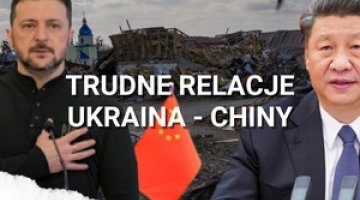Russian economic pressure on Ukraine
Russia stepped up its economic pressure on Ukraine last week. Massive gas price hikes were announced, and the recent gas price discounts were included in Ukrainian debt. Those Ukrainian oligarchs who have backed the new government in Kyiv are losing their business in Russia. By once again using economic pressure in relations with Kyiv Moscow wants to reinforce its pressure on the new Ukrainian government and thus force it to accept a resolution of the Russian-Ukrainian crisis on Russian terms. Russia hopes that economic tools will convince at least part of Ukrainian big business to take action in order to satisfy Moscow’s demands. Russian economic sanctions pose an enormous challenge to Ukraine, whose economy has been in recession over the past two years. Kyiv will not be able to cope with the economic pressure without external assistance.
Russia’s moves with regard to Ukraine
Dmitry Peskov, President Putin’s spokesman, announced on 21 March that following the annexation of Crimea to Russia, the discount on gas granted to Ukraine in 2010 under the so-called “Kharkiv agreements” in exchange for Russia’s Black Sea Fleet being stationed in Crimea would no longer apply. The discount on the gas price granted to Ukraine on 17 December 2013 will also be rescinded starting from 1 April 2014. When both discounts are cancelled, Russia may set a price for Ukraine reaching as much as US$500 for 1,000 m3 of gas (while the price applicable in the first quarter of this year was US$268.5 for 1,000 m3).
Furthermore, Prime Minister Dmitry Medvedev announced at a meeting of the Security Council of the Russian Federation on 21 March that Ukraine owes Russia a total of US$16 billion, including US$3 billion, the price Russia paid for Ukrainian treasury bonds last December, and around US$2 billion as gas payment arrears. The remaining US$11 billion is the value of the gas price discounts granted by Russia to Ukraine under the Kharkiv agreements from 2010, which in his opinion should now be paid back since the annexation of Crimea has invalidated the agreement.
In turn, according to the Ukrainian side, Russian customs services withheld clearances of trucks carrying goods of Ukrainian origin on 20 March. The Federal Customs Service of Russia denied these claims and announced that it had intensified customs control on Ukrainian goods due to reports of the attempted transport of goods banned from exports, including weapons.
The Russian Federal Service for Veterinary and Phytosanitary Surveillance (Rosselkhoznadzor) has also cranked up its checks on food products (especially meat and meat products) on the Ukrainian-Russian border. Its representative, Aleksey Alekseyenko, has stated that Russia needs to carry out more thorough checks since the Ukrainian veterinary service has slackened its surveillance due to the recent developments and unrest in the country.
Russia’s moves with regard to Ukrainian oligarchs
In addition to putting pressure on trade and the energy sector (and the Ukrainian economy is especially sensitive to this at present), Russia has taken measures to harm the interests of Ukrainian big business, some of whose representatives have backed the new government in Kyiv. In early March, the Russian Central Bank introduced an interim management board at Moscomprivatbank, which belongs to Ihor Kolomoyskyi, a Ukrainian oligarch. This happened soon after Kolomoyskyi had accepted the new Ukrainian government’s proposal to take the post of head of the state administration in Dnipropetrovsk and had spoken critically on the subject of Russia’s policy towards Ukraine. Roshen, a company owned by Petro Poroshenko had its Russian banks accounts frozen on 14 March (with around US$48 million reported deposits). Poroshenko supported the Maidan financially and co-operated with Arseniy Yatsenyuk when the government was being formed. A ban on imports of Roshen’s products to Russia had been imposed in July 2013. However, the production of the company’s two factories located in Lipetsk Oblast in Russia was intended for sale on the Russian market. The fact that the bank accounts have been frozen means that the company had to halt construction of its third factory. Its two factories already operating were also forced to suspend production on 20 March for an indefinite period due to inspections from inspection authorities and criminal proceedings launched as a consequence of an action brought by the Russian confectionary company, Obiedinenye Konditery.
Russia’s goals
Russia has decided to employ the tools of economic pressure with regard to Kyiv once again in the face of the ever more evident failure of the pro-Russian protests in southern and eastern Ukraine. Moscow had hoped that it would be able to put pressure on the government in Kyiv by activating pro-Russian circles who would raise separatist slogans and destabilise the situation in these regions and thus make the Ukrainian side more willing to initiate dialogue with Russia on Russian terms. Russia’s sabotage actions and aggressive propaganda campaign aimed at instigating ‘pro-Russian revolutions’ have failed to bring the expected results.
Russia has upped its pressure on the government in Kyiv in an attempt to force it to adopt the solutions regarding Ukraine’s political system which Russia itself has put forward. Such solutions would have ensured Moscow control over Ukraine and guaranteed that Ukraine remained within Russia’s sphere of influence. The financial pressure emerging as a consequence of the gas price hikes and the inclusion of the previously granted gas price discounts in Ukraine’s debt is aimed at offsetting the positive effect of the support offered to Ukraine by Western countries. Furthermore, the high gas prices set by Russia will in all likelihood contribute to Ukraine’s debt to Russia rapidly rising, thus offering Russia more possibilities to put pressure on Kyiv. This could also be used, for example, as a pretext to threaten Ukraine with gas supply cuts.
The restrictions on exports need to be seen as a warning demonstrating the possible way in which the situation will develop if the government in Kyiv continues to reject the Russian terms for settling the crisis. Apart from direct pressure on the government, these actions could also be motivated by the desire to influence Ukrainian business circles to join in lobbying for a compromise with Russia.
At the same time, by imposing selective sanctions on individual Ukrainian oligarchs, Russia has dealt a blow to the people who have been most actively engaged in supporting the Maidan and the new government in Kyiv. These sanctions are intended as a punishment to them and as a warning to all the other representatives of business circles, most of whom have not taken any side in the Russian-Ukrainian conflict.
Ukrainian business present in Crimea is especially sensitive to Russian politics – significant assets are held there for example by Dmytro Firtash (he was detained on 13 March in Austria upon request from the United States), Andriy Klyuyev, Ihor Kolomoyskyi (his Privatbank has invested around US$1 billion in the construction of a bank network and loans granted) and above all, Rinat Akhmetov, who owns for example the main local electricity distributor, Krymenergo, and maritime ports. The stance Rinat Akhmetov will take is essential for Russia, since – given his position in eastern Ukraine – he might become a key figure for the development of events in this region.
…The consequences of Russia’s pressure in trade relations...
The Russian economic restrictions pose a great threat to the Ukrainian economy, which has been plunged in recession for almost two years. Restrictions on imports from Ukraine, already intensified by Moscow in 2013, have affected the sharp decline in Ukrainian exports to Russia, which remains the most important trade partner for Ukraine. Although the mutual exchange of goods has been regularly shrinking for two years now, the real slump took place at the beginning of 2014. According to the Ukrainian statistical service, exports from Ukraine to Russia fell in January this year by as much as 32.6% (imports by 12.2%), as compared to the fall in exports to Russia in the entire 2013 by 14.6% (and in imports by 15.3%). The dramatic fall of exports to Russia in January is very likely to continue over the coming months this year and will thus significantly affect Ukraine’s economic results (according to the minister of finance, Oleksandr Shlapak, the country’s GDP will fall this year by 3%). The decreasing number of orders from the Russian Federation has affected the economy of the more industrialised eastern Ukraine especially strongly.
… and in the gasfield
Moscow’s decision to cancel gas price discounts for Ukraine may cause a huge increase in gas import costs (by 74.5% at the least). This will be a further blow to the Ukrainian economy which has been in recession for almost two years and also to the Ukrainian budget, where a great share of funds has recently been allocated to pay for imported gas. The shortage of funds necessary to pay for Russian gas (partly due to delays in payments from domestic end recipients to the state-owned gas importer company, NAK Naftogaz of Ukraine) resulted in a huge reduction in Russian gas imports in the first months of this year (by the end of February, the daily level of gas imports from Russia was five times lower than a year earlier). The decrease in imports has been compensated by a significant increase in the use of Ukrainian gas reserves from underground storage facilities. Over the past twenty days alone (between 20 February and 9 March) 4 billion m3 of gas was taken from the storage facilities. This means that the country’s gas reserves have shrunk by over one third, to around 7.5 billion m3. Ukraine is now facing depletion of its gas reserves since 4.8 billion m3 of the total reserve is so-called “buffer gas” and removing it could damage the storage facilities, and a further approximately 1 billion m3 of gas is kept in the Glebovsky gas storage in Crimea. Reserves could, then, be depleted already in the first half of April.
Ukraine is preparing for a situation in which the price of Russian gas could rise rapidly; it is considering resuming gas imports from Western suppliers (as part of a so-called “reversal”), which was done in 2013. However, imports from Europe do not offer a real alternative to Gazprom’s supplies (the technical possibilities at this moment allow a maximum of 4.8 billion m3 of gas to be imported annually from Poland and Hungary). The launch of supplies from Slovakia could, however, mark a breakthrough, but this requires building a gas bypass to skip the main Slovakia-Ukraine connector controlled by Gazprom (the construction of such an interconnector, with an annual capacity of 10 billion m3, was discussed last autumn). Gas imports from Europe at the maximum possible capacity at this moment coupled with local gas production (around 20–21 billion m3 annually) will be insufficient to satisfy domestic demand (in 2013, it dropped to 50.4 billion m3), especially given the fact that Ukraine will have to fill its almost exhausted underground gas storages before the next winter season.
The government in Kyiv has refused to accept the Russian stance on the invalidation of the Kharkiv deal. However, since it has no clear and coherent strategy as to how to respond to the economic blackmail from Moscow, it has been focused on reacting to moves already made by Russia. As the Russian pressure is increasing, Kyiv is pinning its hopes above all on support from the West. The European Commission has backed the project to launch the gas reversal from Slovakia, but it is still unclear whether significant gas supplies to Ukraine will be carried out from this direction (Slovakia wants guarantees that Ukraine will receive gas supplied via this route and pay for transit). Given the present situation, it appears that the most important thing for Ukraine now is to reach an agreement with the International Monetary Fund in order to be granted a new multi-billion loan programme and to effectively make use of these and other aid funds offered to Kyiv by the EU, its individual member states, and the international financial institutions.





